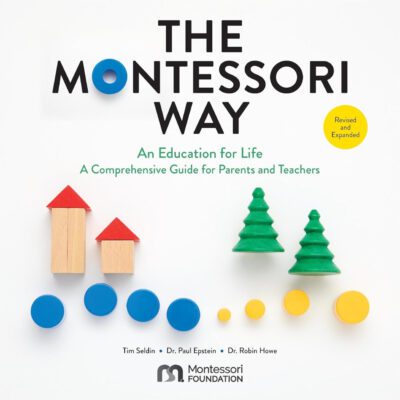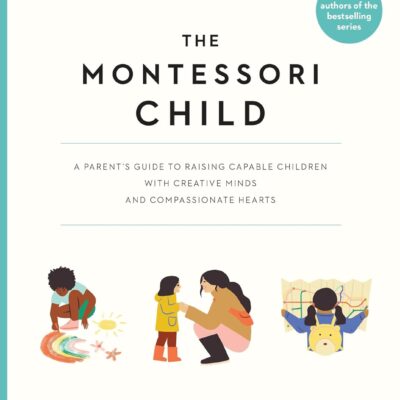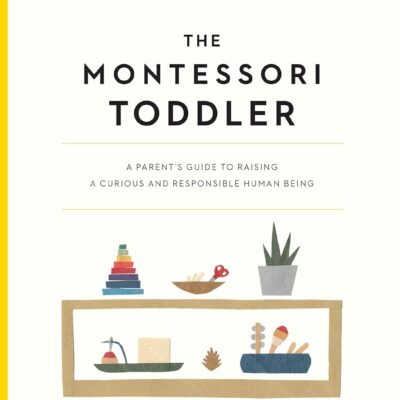
This is a brief summary of “The Brain Architects” podcast by The Center on the Developing Child at Harvard University. This particular episode was titled “Why Sleep Matters in Early Childhood Development: A Discussion on the Main Ways Sleep Affects Early Childhood Health and Well-being.” It was published July 28, 2025
Sleep isn’t just a daily necessity—it’s a fundamental part of how young children grow, think, feel, and learn. In a recent episode of The Brain Architects podcast, produced by the Center on the Developing Child at Harvard University, host Emilia Johnson sat down with two leading researchers in the science of sleep: Dr. Lindsay Burkhart, the Center’s Chief Science Officer, and Dr. Rebecca Spencer, a professor of cognitive neuroscience at the University of Massachusetts Amherst.
Their conversation revealed just how critical sleep is in shaping early brain development and highlighted practical takeaways for parents, caregivers, educators, and policymakers. Below is a synthesis of their discussion, filled with insights that every parent should know.
Why Sleep is So Powerful
Dr. Spencer began by explaining that sleep occupies about a third of our lives—an indicator that it must serve essential functions beyond just rest. While awake, our brains multitask constantly. But during sleep, the brain gets a unique chance to process and consolidate information in a protected, distraction-free environment. Sleep allows for:
- Faster memory consolidation: Tasks that take seconds while awake happen 10 times faster during sleep.
- Emotional regulation: Processing experiences and emotions while sleeping leads to calmer, more resilient behavior during the day.
- Physical growth and immune function: Especially in young children, sleep supports growth hormones and helps build strong immune systems.
Sleep is not one single uniform state. It includes multiple stages—like deep (slow wave) sleep and REM (rapid eye movement)—each of which supports different brain functions. Dr. Spencer emphasized that these varied stages together create an “exponential capacity” for the brain to heal, grow, and learn.
Sleep in Infancy: More Than Just a Nap
Infants can sleep up to 20 hours a day, and there’s good reason for that. Dr. Spencer explained that everything is new to a baby—sights, sounds, feelings, and sensations. Babies don’t just absorb experiences; they build the very scaffolding of understanding on which all future learning will rest. Sleep is when that scaffolding is reinforced.
Importantly, sleep also helps prune synapses—streamlining the brain’s networks for efficiency. This is a “smart” process, selecting which connections to keep and which to let go. And much of that decision-making seems to happen during sleep.
Sleep Starts Before Birth
Dr. Spencer highlighted important research—such as studies led by Dr. Caroline Hriniak at Washington University—showing that maternal sleep during pregnancy can directly affect a baby’s sleep and even their social-emotional development. Mothers who experience “circadian disruption” (like shift workers with irregular sleep patterns) are more likely to have infants with sleep disturbances and mood regulation challenges.
Still, Dr. Spencer reassured listeners that not all is lost if circumstances aren’t perfect. Protective factors—like adequate nutrition, rest when possible, and emotional support—can buffer the impact. And postnatal sleep environments and routines remain powerful influences.
Naps Are Not Optional for Young Children
One of the most striking takeaways from the episode is just how essential naps are for toddlers and preschoolers. Dr. Spencer’s research shows that naps do more than rest the body—they protect memories and emotional health.
Here’s why:
- Memory protection: Habitual nappers (typically toddlers and younger preschoolers) suffer measurable memory loss if deprived of their nap. The brain simply can’t hold onto new information without offloading some of it during daytime sleep.
- Emotional reset: Children who nap are less emotionally reactive. That “clean slate” effect after a nap helps them handle peer conflict, frustration, or overstimulation with greater self-control.
- Cognitive processing: Naps help children generalize what they learn—like understanding that “dog” means more than just the family beagle, but all dogs.
As Dr. Spencer put it, a young child’s brain is like a small bucket—it fills quickly and spills over unless emptied (or rather, sorteLO. Some children may need naps again temporarily during developmental leaps.
Sleep Disruption and Its Impact
Whether due to illness, inconsistent routines, or overstimulation, disrupted sleep can pause or even regress a child’s learning temporarily. The good news: once good sleep resumes, children often catch up. That said, chronic disruption—especially in sensitive windows of development—can have longer-lasting effects.
Dr. Spencer pointed to an intriguing nonprofit initiative called Bedtime Math, which encourages children to practice simple math problems before bed. This kind of cognitive “priming” takes advantage of the brain’s natural memory processing during sleep, showing that we can also harness sleep to boost learning—not just avoid setbacks.
Light, Screens, and Bedtime Routines
A recurring theme throughout the discussion was light sensitivity, especially in early childhood. Research by Dr. Lauren Hartstein (Arizona State University) shows that children are significantly more sensitive to light than adults. Even small amounts of light before bed can interfere with the natural release of melatonin—the hormone that cues the body to fall asleep.
Tips for parents:
- Dim lights 45 minutes before bedtime: Create a low-light environment to encourage melatonin production.
- Avoid screens: Tablets and smartphones not only emit disruptive blue light, but they are also overstimulating—offering novelty and excitement when children need calming and routine.
- Choose familiar bedtime stories: Repetition helps cue the brain for sleep. Save new books or exciting content for daytime.
What About Melatonin Supplements?
Dr. Spencer was emphatic on this point: don’t give children over-the-counter melatonin. Here’s why:
- It is not regulated by the FDA, meaning dosage and ingredients can be inaccurate or contaminated.
- It is easily misused. Melatonin isn’t a sleeping pill—it’s a clock setter. It must be taken at the same time every day to have any effect on circadian rhythms.
- Too much melatonin is not better. High doses can disrupt natural melatonin production and cause additional sleep problems.
Prescription melatonin may be appropriate in certain cases (e.g., for children with autism or sensory processing disorders), but only under pediatric supervision.
Temperature and Sleep
Another overlooked factor is temperature regulation. To fall into deep sleep, the body needs to lower its internal temperature. If a child’s sleep environment is too warm—whether due to external heat, too many layers, or over-swaddling—they may struggle to reach restorative sleep stages.
Recommendations include:
- Keep bedrooms cool—ideally between 64 and 68°F.
- Avoid over-swaddling or heavy pajamas in warm rooms.
- Layer lightly so children can regulate their own temperature (e.g., by kicking off a blanket).
Advocating for Sleep in Schools and Policy
As the conversation turned toward childcare and early education settings, Dr. Spencer raised a critical issue: naps are often undervalued in preschool and pre-K environments, especially in state-funded universal pre-K programs.
Some states don’t even require nap opportunities in their curriculum. Yet if naps protect memory, support emotional regulation, and boost cognitive function, then skipping them undermines the very educational goals those programs aim to achieve.
Dr. Spencer called for:
- Quieter, more sleep-conducive nap environments in childcare centers.
- Training for staff to understand that naps are educational, not just logistical.
- Policy changes that include sleep as a developmental and educational priority, not an optional break.
What Parents Can Do
Based on the insights shared by Dr. Spencer and Dr. Burkhart, here’s what parents can do to support healthy sleep in their children:
✅ Respect nap needs, even if inconsistent. Let children nap if they show signs of fatigue—even if they skipped it the day before.
✅ Create a consistent bedtime routine that includes 45 minutes of dim light.
✅ Avoid screens before bed—use calming, familiar books instead.
✅ Keep bedrooms cool, quiet, and dark.
✅ Avoid over-the-counter melatonin, unless prescribed by a pediatrician.
✅ Advocate for nap time in childcare settings and schools.
Sleep is not just rest—it’s an active, essential part of your child’s development. Supporting healthy sleep from pregnancy through early childhood can lay a foundation for learning, emotional resilience, and well-being that lasts a lifetime.
To Learn More
Visit the Center on the Developing Child at Harvard University (https://developingchild.harvard.edu/) and explore The Brain Architects podcast for more conversations on how science can shape better futures for all children.








